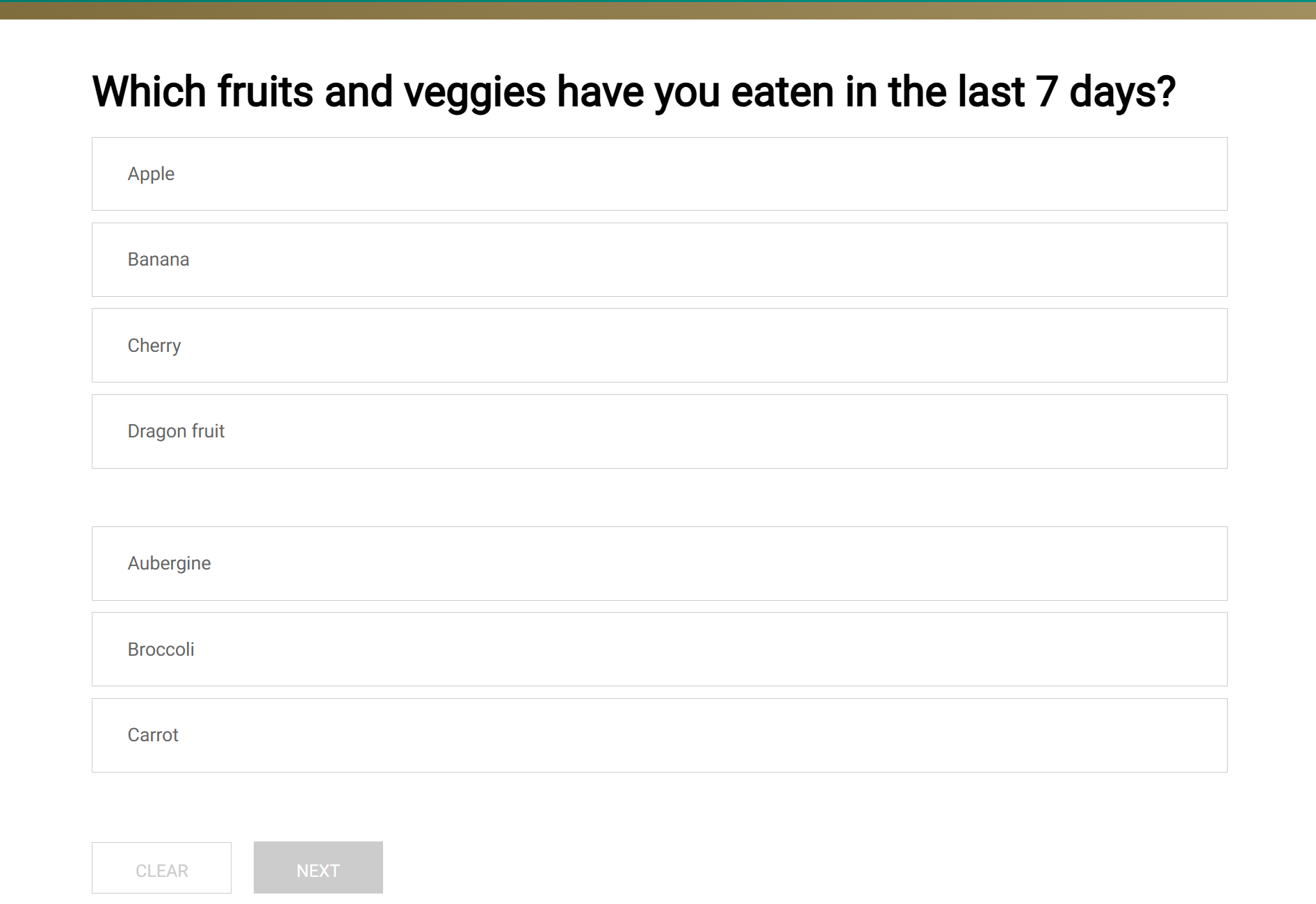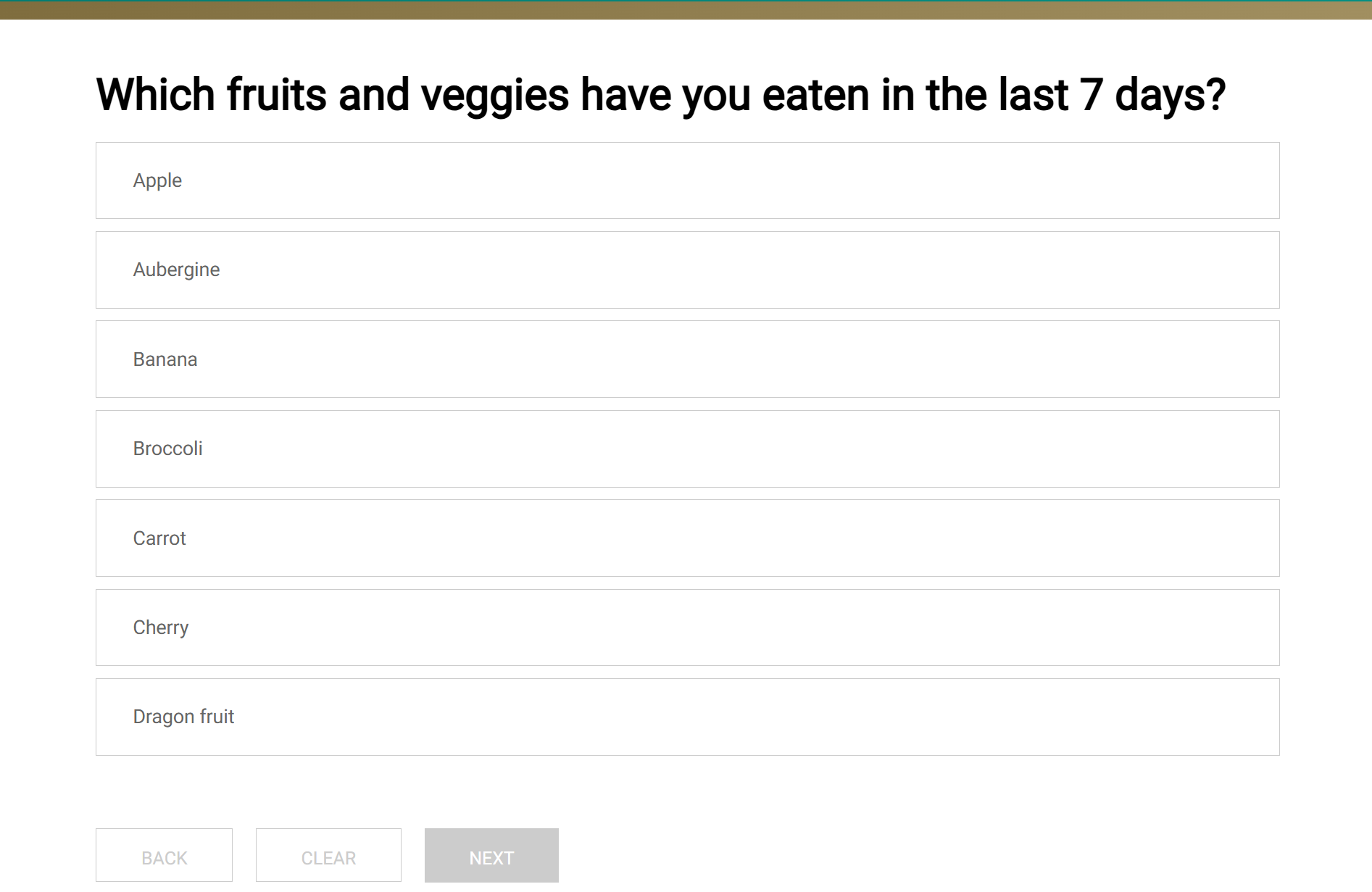|
|
 |
Nfield update
|
10 December 2024
|
|

|
|
On Tuesday, 10 December, we will release a new version of Nfield. This update contains enhancements to the Nfield Manager Quality Control page, an Nfield Trust Center web page, a NIPO ODIN Developer, an authentication endpoint for Nfield API, an *ENDLIST command, and some smaller improvements.
|
|
|
|
You can now track the location where an interviewer conducts an interview using CAPI devices. The location information was already recorded in the paradata file and is now also displayed as a map on the Sample and Assignments/Quality Control page.
This map makes it easy to identify the specific place where each interview was conducted, helping you review and verify interview locations more efficiently.
Location info (See Map button in the screenshot below) is accessible by clicking on the View Details button for each interview in Quality Control page.
We plan to continue enhancing this page and will keep you informed when new updates are available.
|

|
|
Click image to enlarge
|
|
|
|
|
We launched a new section on our website called the Nfield Trust Center. The aim for creating this space is to provide transparency around how we handle data and give reassurance of Nfield's trustworthiness. This is where you'll find information about NIPO practices related to security, compliance, and privacy, in the form of documents that can be shared with your clients. All the backup information you need to support your choice of using Nfield for market research projects.
Here are some examples of what is available in this section: our security whitepaper, a copy of our latest ISO certification, and the technical security assessment statement of the Nfield platform.
|
NIPO ODIN Developer version 5.18.031
|
|
An updated version of the NIPO ODIN Developer is available for download from the NIPO website. This latest version has the following updates:
|
|
•
|
|
It supports the new *SPLITSTRING and *ENDLIST commands.
|
|
•
|
|
We fixed an issue where the generated VAR file was sometimes incomplete.
|
|
Public API - new bearer token authentication method
|
|
As part of further improvements to the Nfield public API, we are introducing a new authentication method using the POST/Token endpoint, which will return a bearer token. This token is set to expire after 10 minutes. We are working on a feature to get a refresh token after expiry, but for the moment, the Token endpoint will have to be called again after the token has expired.
This authentication method not only provides significantly enhanced security and flexibility but also aligns and optimizes the authentication across Nfield components. For more specifics about how to use the POST/Token endpoint, please consult the API Help page. We will keep you informed on future updates.
While the aim is that the bearer token authentication will replace the current basic token authentication method (using the POST /v1/signIn endpoint), the latter will still be supported until 1 July 2025 to allow Nfield users enough time to make the required changes to their processes.
|
ODIN - the new *ENDLIST command
|
|
Part of this release is the introduction of a new *ENDLIST command, which can be used (optionally) to explicitly mark the end of a *LIST definition.
Lists, like many other ODIN concepts, do not have a well-defined termination token; Nfield assumes an ODIN command ends where the next ODIN command starts, or at the first line feed. For the sake of readability, commands are usually separated by empty lines in a script. In most cases, these empty lines are ignored by Nfield. However, when referring to multiple lists in a single question, empty lines in a list definition will create an implicit heading, thereby splitting the merged list into groups. If the merged list is then sorted or randomized, the sort order will be applied within each of these groups separately, rather than on the merged list as a whole.
We have opted to introduce an explicit *ENDLIST command as a relatively quick and easy way to prevent these issues where applicable, without introducing any breaking changes for users who may have come to rely on this behavior.
Example:
The following script:
*TEMPLATE NfieldChicago
*LIST "Fruits"
1:Banana
2:Dragon fruit
3:Apple
4:Cherry
*LIST "Veggies"
5:Broccoli
6:Aubergine
7:Carrot
*QUESTION 10 *CODES 61L7 *MULTI *SORT en-us
Which fruits and veggies have you eaten in the last 7 days?
*USELIST "Fruits"
*USELIST "Veggies"
will generate the following result:
|

|
|
Click image to enlarge
|
|
|
Inserting *ENDLIST into the script:
*TEMPLATE NfieldChicago
*LIST "Fruits"
1:Banana
2:Dragon fruit
3:Apple
4:Cherry
*ENDLIST
*LIST "Veggies"
5:Broccoli
6:Aubergine
7:Carrot
*QUESTION 10 *CODES 61L7 *MULTI *SORT en-us
Which fruits and veggies have you eaten in the last 7 days?
*USELIST "Fruits"
*USELIST "Veggies"
will result in the following:
|

|
|
Click image to enlarge
|
|
Support for *GETDATA will end 31 January 2025
|
|
In 2023 we launched the *REQUEST command (see the the Nfield Reference manual, section 6.58) in ODIN as an extension of *GETDATA to perform calls to external API's during an interview. As we have communicated repeatedly over the past year in our Nfield updates, we are now officially retiring *GETDATA as an ODIN command, as it has been replaced by *REQUEST.
On 4 November we conducted several 30-minute 'brownouts' in all regions, during which time any interviews using the *GETDATA command would break. After successfully establishing that this did not cause any significant issues for our customers, we can now safely proceed with fully retiring this command.
As of 31 January 2025, the *GETDATA command will no longer be supported. It will no longer be possible to publish scripts containing *GETDATA or to run interviews which use *GETDATA.
|
Nfield CAPI minimum app version from 1 January 2025
|
|
From 1 January 2025 onwards the minimum version of the Nfield CAPI app that can be used for fieldwork is 2.28. Interviewing devices that are running a version of the app that is lower than 2.28 will no longer be able to synchronize with Nfield.
As a Domain Administrator it is important to share this news within your organization so it gets the attention of the people that should act. If you are working with the older Nfield CAPI app versions that stop being supported, now is the time to ensure business continuity by keeping your CAPI devices updated with at least the minimum required app version (preferably upgrading them to the latest CAPI app version).
|
Reminder: Nfield CAPI supported Android versions changes per 1 January 2025
|
|
NIPO will raise the minimum supported Android version to Android 12 on 1 January 2025.
What does this minimum supported version mean for you? If you encounter a problem with your device, for instance, an issue with performance, and the device is running an Android version below the minimum supported version, we will always first ask you to upgrade to at least the minimum supported Android version. It also means that all future releases of the Nfield CAPI app will require at least the minimum supported Android version to be installed on your device.
As a general recommendation we advise you to update to the latest Android version on your device(s) as soon as you can.
|
|
|
|
We fixed the following issues:
|
|
•
|
|
In Trackers, when a new wave was copied from an existing one, the script file name is renamed to the survey name it was copied from, which was leading to confusion. This has now been fixed. The script file name will stay the same as it was in the original script file.
|
|
Nfield Trust Center
The Nfield platform is built with security, privacy, compliance, and transparency at its heart.
View documentation
|
As always, please share this information with all relevant people in your organization.
|
|